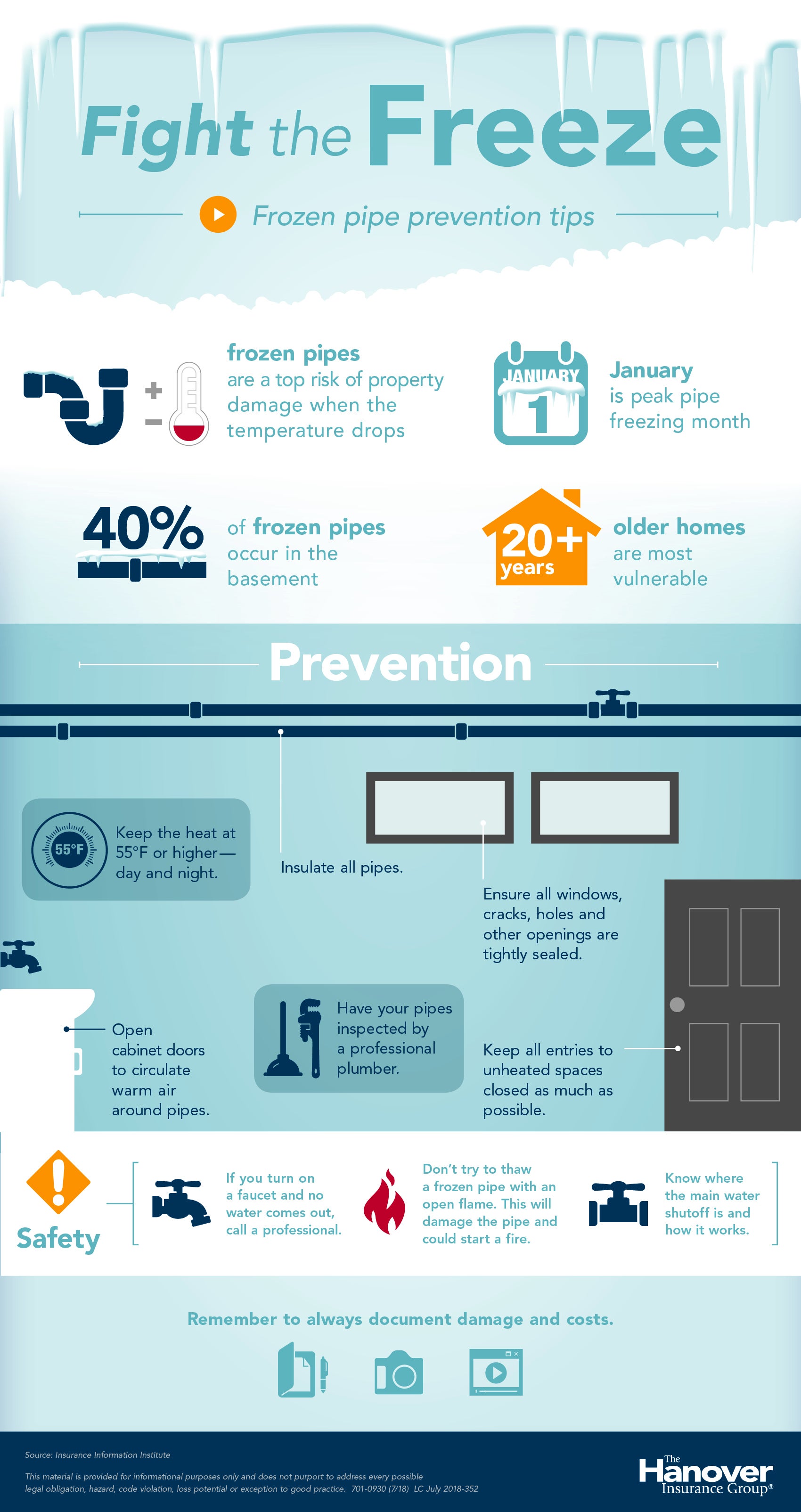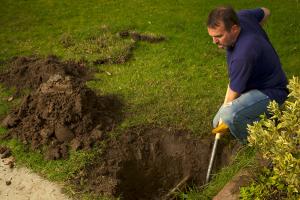Frozen pipe prevention tips
During the deep winter freeze, pipes may develop ice and form a blockage. Frozen pipes are a top risk of property damage when the temperature drops, especially for homes that are more than 20 years old. Live in a warmer climate? Don’t forget that your pipes can freeze and burst when a cold spell hits.
If a frozen pipe bursts, it can send water pouring into your home and cause more than $5,000 in damage. Know how to prevent frozen pipes in winter weather and keep your home warm and dry.
LC July 2018-352
Related resources
Frozen pipe prevention tips
During the deep winter freeze, pipes may develop ice and form a blockage. Frozen pipes are a top risk of property damage when the temperature drops, especially for homes that are more than 20 years old. Live in a warmer climate? Don’t forget that your pipes can freeze and burst when a cold spell hits.
If a frozen pipe bursts, it can send water pouring into your home and cause more than $5,000 in damage. Know how to prevent frozen pipes in winter weather and keep your home warm and dry.
LC July 2018-352
Related resources
Frozen pipe prevention tips

During the deep winter freeze, pipes may develop ice and form a blockage. Frozen pipes are a top risk of property damage when the temperature drops, especially for homes that are more than 20 years old. Live in a warmer climate? Don’t forget that your pipes can freeze and burst when a cold spell hits.
If a frozen pipe bursts, it can send water pouring into your home and cause more than $5,000 in damage. Know how to prevent frozen pipes in winter weather and keep your home warm and dry.
LC July 2018-352
- Transcript
-
Fight the freeze
Frozen pipe prevention tips
- Frozen pipes are a top risk of property damage when the temperature drops
- January is peak pipe freezing month
- 40% of frozen pipes occur in the basement
- Older homes are most vulnerable
- Remember to always document damages and costs.
Prevention
- Keep the heat at 55 degrees farenheit or higher, day and night
- Insulate all pipes
- Ensure all windows, cracks, holes and other openings are tightly sealed
- Open cabinet doors to circulate warm air around pipes
- Have your pipes inspected by a professional plumber
- Keep all entries to unheated spaces closed as much as possible.
Safety
- If you turn on a faucet and no water comes out, tell a professional.
- Don't try to thaw a frozen pipe with an open flame. This will damage the pipe and could start a fire.
- Know where the main water shutoff is and how it works.
Remember to always document damage and costs.
Related resources
Frozen pipe prevention tips

During the deep winter freeze, pipes may develop ice and form a blockage. Frozen pipes are a top risk of property damage when the temperature drops, especially for homes that are more than 20 years old. Live in a warmer climate? Don’t forget that your pipes can freeze and burst when a cold spell hits.
If a frozen pipe bursts, it can send water pouring into your home and cause more than $5,000 in damage. Know how to prevent frozen pipes in winter weather and keep your home warm and dry.
LC July 2018-352





